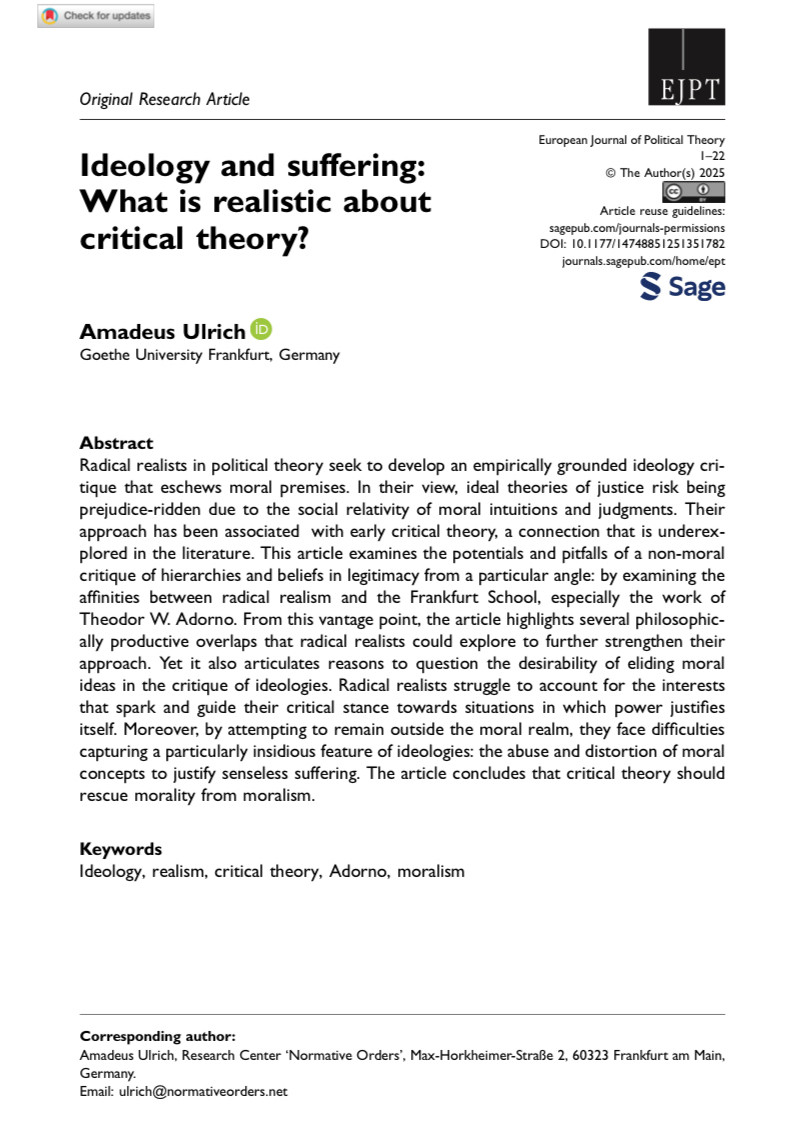Ideology and Suffering: What Is Realistic about Critical Theory?
Abstract:
Radical realists in political theory seek to develop an empirically grounded ideology critique that eschews moral premises. In their view, ideal theories of justice risk being prejudice-ridden due to the social relativity of moral intuitions and judgments. Their approach has been associated with early critical theory, a connection that is underexplored in the literature. This article examines the potentials and pitfalls of a non-moral critique of hierarchies and beliefs in legitimacy from a particular angle: by examining the affinities between radical realism and the Frankfurt School, especially the work of Theodor W. Adorno. From this vantage point, the article highlights several philosophically productive overlaps that radical realists could explore to further strengthen their approach. Yet it also articulates reasons to question the desirability of eliding moral ideas in the critique of ideologies. Radical realists struggle to account for the interests that spark and guide their critical stance towards situations in which power justifies itself. Moreover, by attempting to remain outside the moral realm, they face difficulties capturing a particularly insidious feature of ideologies: the abuse and distortion of moral concepts to justify senseless suffering. The article concludes that critical theory should rescue morality from moralism.


